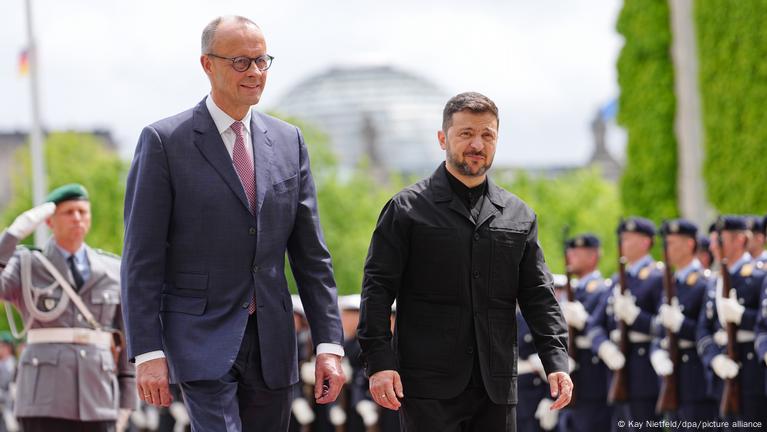German Chancellor Friedrich Merz is facing mounting opposition from within his governing coalition over a potential plan to send German troops to Ukraine as part of a European peacekeeping effort. The Social Democratic Party (SPD), one of Merz’s key coalition partners, has made it clear that any such deployment must include U.S. forces, an increasingly unlikely scenario given President Donald Trump’s refusal to commit American ground troops to the region.
According to a report by Bild, SPD leaders have told Chancellor Merz they would only back the deployment of Bundeswehr troops to Ukraine under the condition that U.S. troops are also part of the mission. Without American involvement, the SPD argues, the risks to Germany both legally and militarily are too great.
This stance poses a significant challenge for Merz, who has been advocating for a more unified European response to Ukraine’s security needs in the event of a ceasefire or post-conflict stabilization.
Merz Calls for European Unity
Chancellor Merz has not ruled out sending German forces to Ukraine, stating that “the whole of Europe should participate” in ensuring Ukraine’s future security. “This is not only about Ukraine,” Merz said earlier this week. “It’s about the political order in Europe.”
However, his position has stirred discomfort among some lawmakers, including CDU members and state leaders, who fear overextending Germany’s already-stretched military capabilities.
Critics, including Foreign Minister Johann Wadephul, have warned that Germany’s military lacks the resources for such a high-stakes deployment. “If we consider all the missions we are currently involved in, sending troops to Ukraine would probably be too much,” Wadephul said.
Legal experts cited in Bild have also expressed concerns that a deployment without direct NATO involvement or an international mandate could put Germany in “uncharted legal territory,” especially if the conflict were to flare up again.
Geopolitical Implications
A recent RTL/ntv poll shows a nation divided: 49% of Germans support sending troops to Ukraine as part of a European peacekeeping force, while 45% oppose the idea. The divide is particularly sharp in eastern Germany, where skepticism toward foreign military interventions remains high.
Given Germany’s historical reluctance toward military involvement abroad, intensified by the country’s roles in Afghanistan and Mali, the current debate underscores deep divisions over what role the Bundeswehr should play in global security.
For now, any German deployment would require a mandate from the Bundestag, making parliamentary approval another potential hurdle. Merz, despite championing greater European solidarity, may have to retreat from his proposal unless broader political consensus—and international cooperation—can be secured.
Germany’s cautious approach is further complicated by international dynamics. France and the United Kingdom have expressed support for sending peacekeeping forces to Ukraine under a ceasefire agreement. However, the absence of U.S. backing raises questions about the mission’s credibility and deterrence power especially as there might be potential Russian retaliation.
